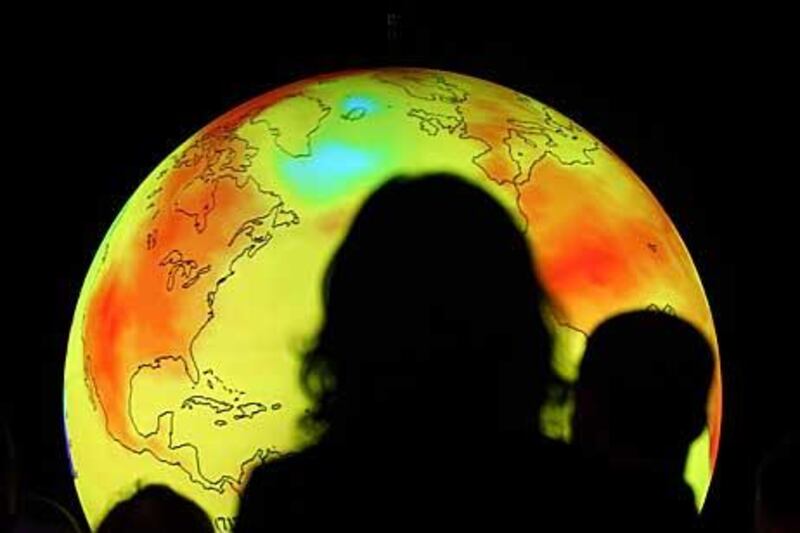The UAE has a clear, clean energy priority to promote when top-level international climate change negotiations begin tomorrow in Cancun, Mexico.
The talks, which run until December 10, draw together experts and politicians from 194 countries that have signed the United Nations Framework Convention on Climate Change. Ultimately, the aim is to reach agreement on how to share the burden of reducing emissions of greenhouse gases into the atmosphere.
The UAE will be pushing for a faster transfer of clean technologies from rich industrial countries to developing nations, said Dr Sultan al Jaber, the UAE's special envoy on energy and climate change and head of the UAE delegation.
Rich industrial countries have been considered the bearers of historic responsibilities for fighting climate change, he said.
The UAE will also be looking to share its own experience in the sphere of clean technologies by showcasing the success of Masdar, the Abu Dhabi clean energy company.
"We are going into the discussions with an optimistic, but yet realistic view," said Dr al Jaber.
Although scientists say much is at stake - melting of vast amounts of ice in high-mountain glaciers and at the poles as well as sea-level rise - politicians have had a hard time working out a legally binding agreement that commits countries to targets on cutting emissions.
"A comprehensive agreement may not be likely, but real progress must be made, no matter how incremental," said Dr al Jaber.
As the event progresses, it is likely that Sheikh Abdullah bin Zayed, the Minister of Foreign Affairs, will step in to lead the delegation.
"The UAE is ultimately looking for a comprehensive and lasting agreement, including a continuation of the Kyoto Protocol," said Dr al Jaber.
The Kyoto Protocol obliges 37 industrial countries to reduce greenhouse emissions by five per cent on 1990 levels in the period between 2008 and 2012. In the absence of a new deal, it is not clear what will happen to these countries' commitments after 2012.
"More immediately," said Dr al Jaber, "we want to see real progress on mechanisms to improve technology development and transfer".
Specifically, the delegation wants to see a renewed commitment to the Clean Development Mechanism, including support for carbon capture and storage. The Clean Development Mechanism in effect helps fund projects in developing countries that use new and proven technologies to reduce greenhouse emissions. Examples are reducing gas flaring, collecting methane emissions from landfills, and implementing energy efficiency projects in industry.
The UAE has ratified the protocol but is not among the 37 countries obliged to reduce emissions. Its only obligation is to report on its emissions levels.
Dr al Jaber, who is also the managing director and chief executive of Masdar, said the UAE's negotiating position has been strengthened because of the clean energy initiative, which includes the building of solar energy plants in Abu Dhabi and the world's largest carbon-free development.
"We are not coming in as a passive participant, we are coming with experience, with models we have done on the ground," he said.
Mari Luomi is a researcher at the Finnish Institute of International Affairs who has been studying the climate change positions of oil-rich Gulf countries. She said that while some aspects of the UAE's position aim to defend its interests as a major oil exporter, others reflect "the rise of environmental issues and climate change on the domestic political agenda".
"These are issues that the Organisation of the Petroleum Exporting Countries has always been raising," she said. "They are safe positions."
The insistence on carbon capture and storage, a new technique that involves capturing carbon dioxide emissions and storing them deep underground in geological formations, is a way to "extend the era of oil", she said.
However, she said, other moves - such as Masdar, and Abu Dhabi's target of using renewable energy for five per cent of its power by 2020 - indicate the UAE is trying to balance its oil interests with a newly emerging concern for environmental issues.





